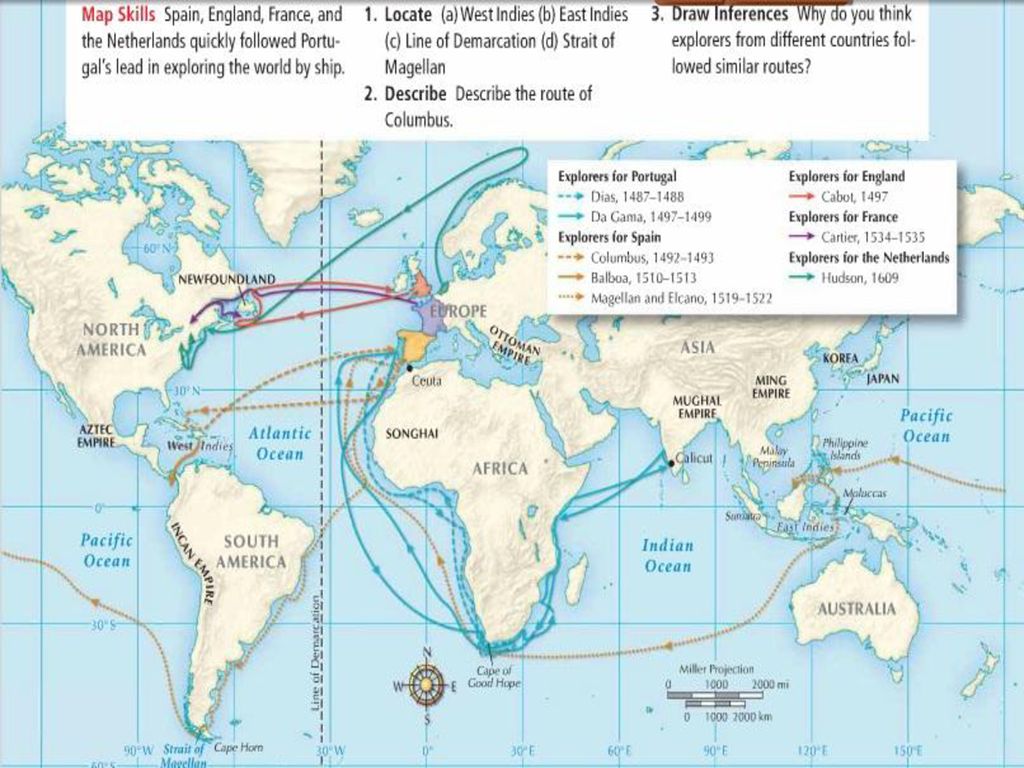The French, Dutch, and English all sought to gain footholds in South America, but had to settle for the unimportant Guianas. They thoroughly broke up the Spanish hold on the Caribbean, however. In early modern times these islands were one of the great prizes of imperialism. Cheap slave labor raised tobacco, fruits, coffee, and, most profitably, cane sugar.
By 1715 the French, Dutch, and English had also laid the bases of trading and colonial empires in Asia and Africa. India proved to be the richest prize and the most ardently fought for. The Mogul empire could not keep the Europeans out of southern India, but it did confine them mainly to the coastal fringes. Gradually during the seventeenth century both the French and the English established themselves in India. The English defeated a Portuguese fleet in 1612 and immediately got trading rights at Surat on the western coast.
Although the Mogul emperor Aurangzeb (r. 1658-1707) tried to revoke their rights in 1685, he soon found their naval and mercantile power too much to withstand. In 1690 the English founded Calcutta. Meanwhile, the French had gotten a foothold near Madras at Pondichery and soon had established other stations. By the beginning of the eighteenth century the stage was set for a decisive struggle for overseas empire between France and Britain—a struggle now known as the Great War for Empire—which lasted until 1763.
Both countries operated through chartered trading companies: the English East India Company (1600) and the French Compagnie des Indes Orientales (1664). The companies were supported by their governments. Although both countries became involved in Indian politics and warfare to support their trading companies, neither attempted extensive permanent settlement in the East.
The Dutch entered even more vigorously into the competition, founding their own East India (1602) and West India (1621) companies. In sharp contrast to the close government supervision exerted by Spain and Portugal, the Dutch granted these private business ventures full sovereign powers. They had the right to maintain their own fighting fleets and armies, declare war and wage it, negotiate peace, and govern dependent territories.
The Netherlands East India Company succeeded in pushing the Portuguese out of Ceylon and then concentrated on southeastern Asia, especially the East Indies. Here again they pushed the Portuguese out and effectively discouraged interlopers. Through it all the company paid its shareholders an annual dividend averaging 18 percent. Despite their rapid decline as a great power in the eighteenth century, the Dutch had so firm a hold in Java and Sumatra that their empire in Indonesia was to last until the mid-twentieth century.

